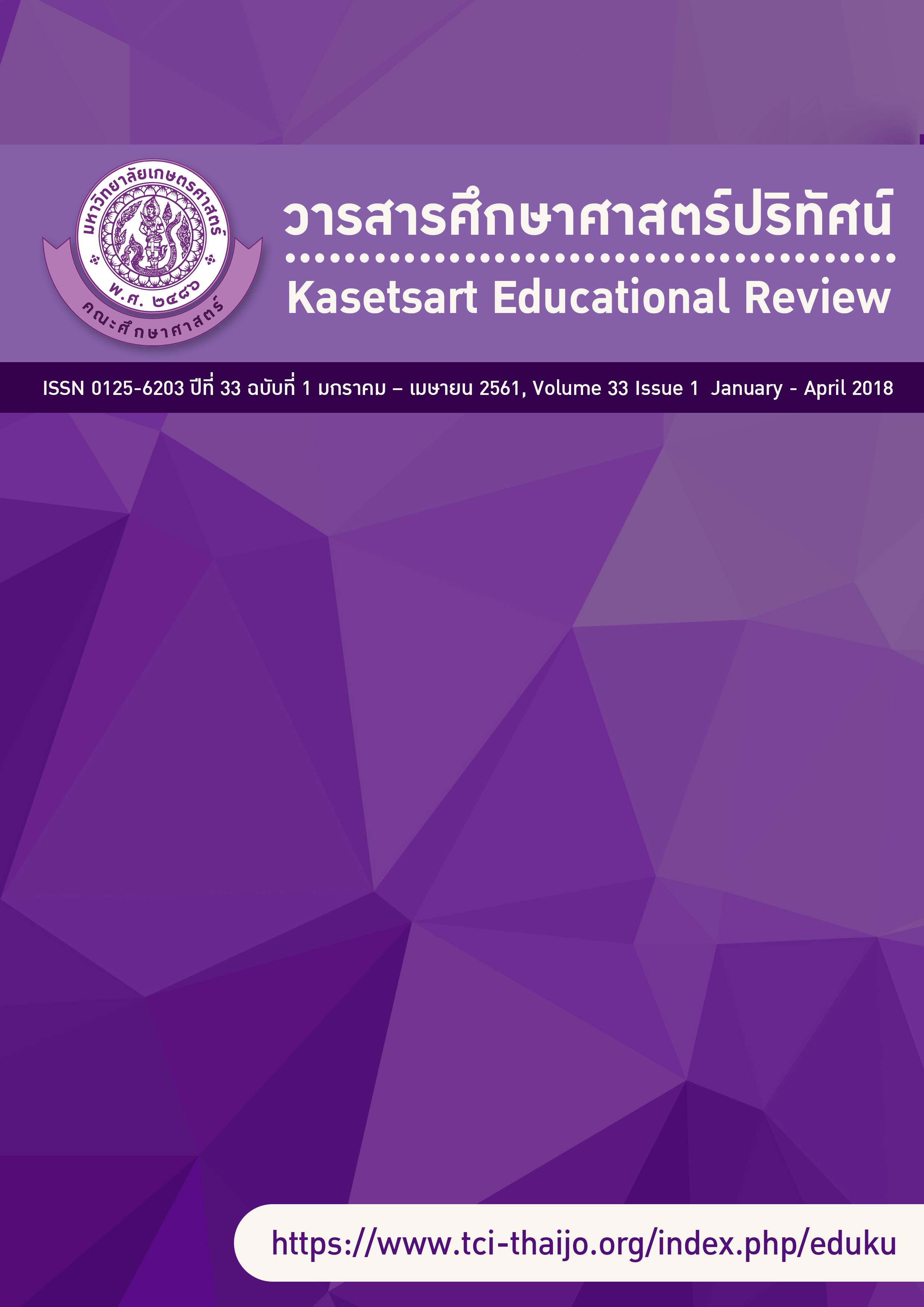Key Evaluation Checklist for Self–Evaluation on Learning Management Competencies in the Twenty-First Century for Teachers under the Office of the Basic Education Commission
Keywords:
Key Evaluation Checklis, Self-Evaluation, Competency, Learning Management, the twenty-first century, The Office of the Basic Education CommissionAbstract
This research aims to developand determine the quality ofa key evaluation checklist for self–evaluation on Learning Management
Competencies in the twenty-first century for teachers under the Office of the Basic Education Commission. Learning management competencies in the twenty-first century were synthesized from learning management concept for the twenty-first century of scholar and educational organizationsin Thailand and foreign countries.The quality of the instrument was determined by 3 aspects, as follows: Content validity was determined by 5 experts examining the indexes of Item-Objective Congruence(IOC). Reliability was determined by internal consistency reliability estimation with Raju’s coefficient by the sample were 418 teachers that wereused stratified random sampling and concurrent validity was determined by using independent samples t-test to compare between mean score of the sample, they were 23 teachers and were learning management competencies in the twenty-first century from purposive selection and mean score ofthe samplefor determined reliability, there were lowest score 25 instrument and they were not learning management competencies in the twenty-first century. Research results were as follows: The key evaluation checklist consisted of 6 learning management competencies. They were learner analysis, development of 21st century skills for learner, classroom management, knowledge of subject matter, assessment for learning and integrating technology into learning management and consisted of 12 indicators. There were 70 items and were used scoring rubric criteria. The indexes of item-objective congruence were between 0.60-1.00 when determined content validity. Raju’s coefficient was 0.889that were determined reliability. When comparing the mean between the two sample groups with independent samples t-test, significant differences were found at the .05 level.
Downloads
Published
Issue
Section
License
บทความทุกบทความเป็นลิขสิทธิ์ของวารสารคณะศึกษาศาสตร์ มหาวิทยาลัยเกษตรศาสตร์ วิทยาเขตบางเขน
วารสารศึกษาศาสตร์ปริทัศน์ (Kasetsart Educational Review)






